Search
Remove Ads
Advertisement
Search Results
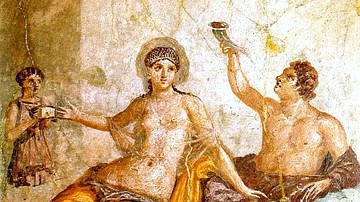
Article
The Eastern Trade Network of Ancient Rome
The life of wealthy Romans was filled with exotic luxuries such as cinnamon, myrrh, pepper, or silk acquired through long-distance international trade. Goods from the Far East arrived in Rome through two corridors – the Red Sea and the Persian...
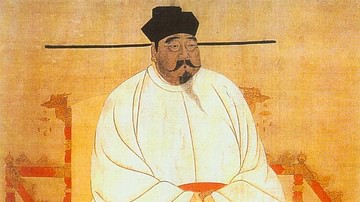
Definition
Emperor Taizu of Song
Emperor Taizu (960-976 CE), formerly known as Zhao Kuangyin, was the founder of the Song (aka Sung) dynasty which ruled China from 960 to 1279 CE. Taizu settled for a territorially smaller but more unified and prosperous China than was seen...
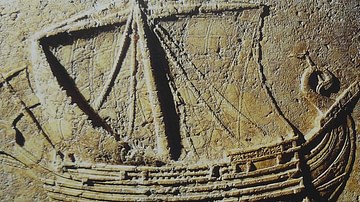
Article
Trade in the Phoenician World
The Phoenicians, based on a narrow coastal strip of the Levant, put their excellent seafaring skills to good use and created a network of colonies and trade centres across the ancient Mediterranean. Their major trade routes were by sea to...
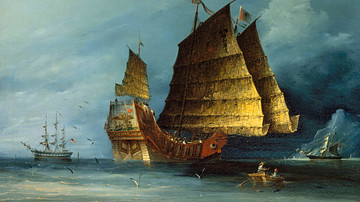
Collection
Ancient China: Geography, Economy & Trade
Ancient China was often connected to the rest of the world through trade, not only along the famous Silk Road but also via merchant ships that sailed the Indian Ocean, connecting East Asia to the Middle East, Europe, and Africa. Silk, paper...

Video
The Silk Road and Ancient Trade: Crash Course World History #9
The Silk Road and Ancient Trade: In which John Green teaches you about the so-called Silk Road, a network of trade routes where goods such as ivory, silver, iron, wine, and yes, silk were exchanged across the ancient world, from China to...
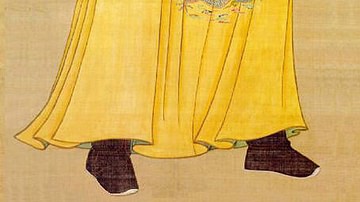
Image
Emperor Taizong
A painted silk scroll depicting Taizong, second emperor during the Tang Dynasty of China, r. 626-649. The emperor's robe shows a dragon, a traditional symbol of rulership as the creature represents wisdom, justice, and benevolence. National...
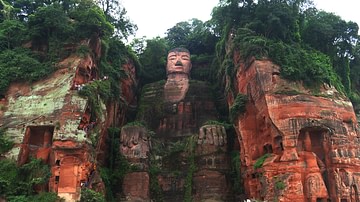
Image
Leshan Giant Buddha
Construction of the famous Leshan Giant Buddha, an enormous statue of a Maitreya (a future Buddha) was started in 713 CE under Xuanzong's reign. A Buddhist monk named Hai Tong began the project to ward off evil spirits from the river at the...
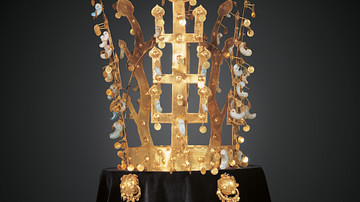
Collection
Precious Materials in Antiquity
Certain materials have always been precious such as gold for its lustre, incorruptibility, and ease to work but some ancient cultures often gave a very high value to more unusual materials. The Romans loved Tyrian purple dye, the Incas prized...
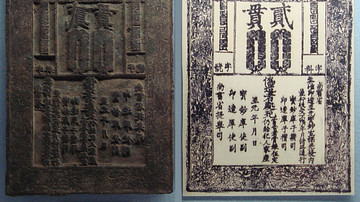
Article
Paper in Ancient China
The widespread use of paper and printing were features of ancient China which distinguished it from other ancient cultures. Traditionally, paper was invented in the early 2nd century CE, but there is evidence it was much earlier. As a cheaper...
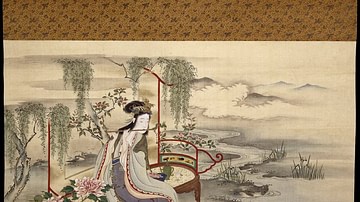
Image
Lady Yang
Chinese beauty Yang Guifei, consort of the Tang emperor Xuanzong (AD 685-762), playing the flute, seated alone on an elaborate Chinese-style throne, surrounded by flowering trees and peonies in open mountain landscape. Japanese painting from...